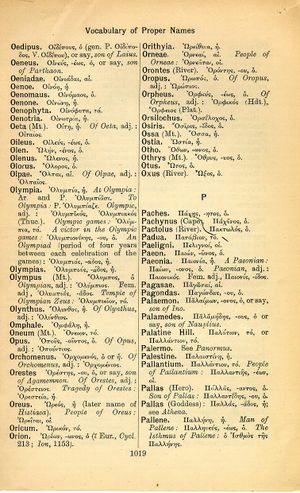Paeonia: Difference between revisions
From LSJ
οὐ βούλομαι δυσχερὲς εἰπεῖν οὐδὲν ἀρχόμενος τοῦ λόγου, οὗτος δ' ἐκ περιουσίας μου κατηγορεῖ → for me—but I wish to say nothing untoward at the beginning of my speech—whereas he prosecutes me from a position of advantage | but for me—I do not wish to say anything harsh at the beginning of the speech, but he prosecutes me from a position of strength
(Names) |
(6_11) |
||
| Line 5: | Line 5: | ||
<b class="b2">Paeonian</b>, adj.: Παιονικός. Fem. adj., Παιονίς, -ίδος. | <b class="b2">Paeonian</b>, adj.: Παιονικός. Fem. adj., Παιονίς, -ίδος. | ||
}} | |||
{{Lewis | |||
|lshtext=<b>Paeŏnĭa</b>: ae, v. [[Paeones]], A. | |||
}} | }} | ||
Revision as of 08:17, 13 August 2017
English > Greek (Woodhouse)
Παιονία, ἡ.
A Paeonian: Παίων, -ονος, ὁ.
Paeonian, adj.: Παιονικός. Fem. adj., Παιονίς, -ίδος.
Latin > English (Lewis & Short)
Paeŏnĭa: ae, v. Paeones, A.

